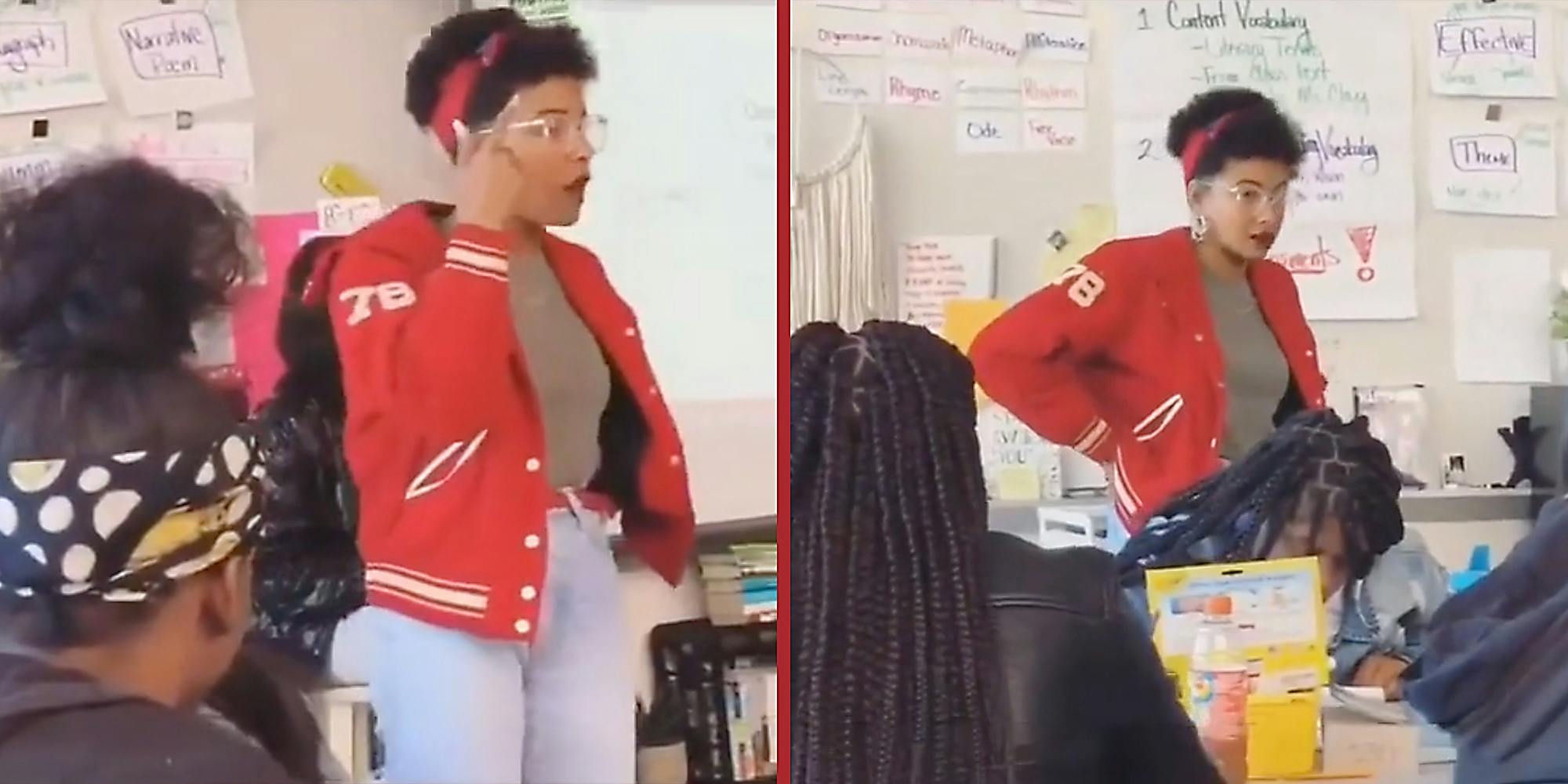
A TikTok posted Sunday of a woman teaching her students the history of the term “dreadlocks” has gone viral with 1.8 million views and 405,000 likes by Thursday.
The TikTok, posted by @ladiimomochanplays, is a repost of a 2018 video posted to Instagram by Valenciá De’La Clay-Bell, the woman in the video. The original video received 185,519 views.
In the video, Clay-Bell stands before her class and says, “Please stop calling Josh’s hair dreads. They are locs.”
She continues to explain that Africans wore their hair locked for spiritual reasons. However, when they went to countries with Eurocentric beauty standards, the Europeans “began to call [their] locs ‘dreads,’ meaning dreadful.”
“So when you call them dreads and don’t even know why you’re using that word, you’re perpetuating an idea that our beauty is in fact not beauty at all,” she says.
Many TikTokers commented that the video made them change the way they see their hair and that they appreciated being educated. Several also wrote that they would “feel safe” in Clay-Bell’s class.
Others, however, felt Clay-Bell was spreading false information about the origin of the style.
The origins of dreadlocks are widely debated, but hair historian Lori L. Tharps told Vogue: “the modern understanding of dreadlocks is that the British, who were fighting Kenyan warriors [during colonialism in the late 19th century], came across the warriors’ locs and found them ‘dreadful,’ thus coining the term ‘dreadlocks.’”
Commenters also felt the video ignored that some individuals and groups—Jamaicans and Rastafarians especially—prefer the term “dreadlocks” because “dread” has a particular political or spiritual meaning to them.
Even RuPaul’s Drag Race star Bob the Drag Queen weighed in, writing that “there are lots of black people who have dreadlocks [...] who love calling them dreads.”
User @ladiimomochanplays made 11 more videos in response to the comments she received. The TikToker explains in a comment and follow-up video that she was referring specifically to African Americans by reposting Clay-Bell’s video and not to Rastafarians or Caribbean people.
“As far as the Rastafarians go, their story is basically they took back the word dreadlocks as a form of power, and I respect that,” @ladiimomochanplays says in the video. “But in America, it was seen as something that was looked down upon, frowned upon, scary, ugly, evil—all that.”
“So for us, we came up with the grooming technique to make it look neater to make it look more presentable,” the TikToker continues. In the next video, she further distinguishes between dreadlocks and locs.
“Dreadlocks is matting of the hair,” she says. “So, whether you naturally let your hair mat into a strand or for white people who force a mat onto their hair, that’s dreading the hair.”
Locs, she says, are the result of a “grooming technique” where the hair is sectioned into parts and twisted. “They’re not letting it mat. They’re twisting their hair and they keep it neat and clean. Those are locs.”
Some still disagreed with the TikToker’s distinctions.
“There are Jamaican Rastafarian Americans,” user @singanthony wrote. “And this stuff about it being more ‘presentable’ is bullshit too and that was anti-black af.”
Others took issue with the TikToker’s written and verbal comments that white people have to forcefully mat their hair.
“So you don’t think white ppls hair can mat?” user @f4nt4s1a wrote. “If you don’t then you got something else coming for you.”
The Daily Dot reached out to @ladiimomochanplays via TikTok comment and to Valenciá De’La Clay-Bell. Neither immediately responded to the request for comment.
The post ‘Please stop calling Josh’s hair dreads’: Teacher says ‘dreadlocks’ are racist in viral TikTok, sparking debate appeared first on The Daily Dot.
0 Commentaires